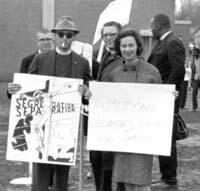Politics and Government: Immigration
Fanny E. Holtzmann
Fanny E. Holtzmann made waves as a lawyer for stars of Broadway and Hollywood as well as luminaries of world politics such as the Romanoffs.
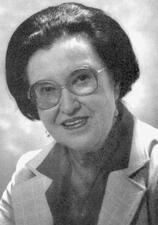
Hunter College
Hunter College of the City University of New York was founded as a public, tuition-free secondary and teacher-training school for women that admitted students solely on the basis of academic merit, at a time when many institutions of higher education were implementing policies of selective admissions designed specifically to deflect disadvantaged students.
International Council of Jewish Women
The International Council of Jewish Women (ICJW) is a Jewish women's organization established at the beginning of the twentieth century, which evolved with the needs and events over time. As a women’s NGO, ICJW participates in a variety of projects promoting women’s rights and human rights, motivated by its roots in Judaism.
Iraqi Jewish Women
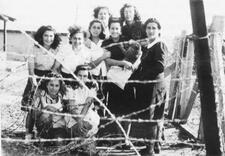
Irgun Zeva'i Le'ummi (I.Z.L.)
The Irgun Zeva’i Le’ummi was a Jewish underground armed organization formed in 1931 to fight British mandatory forces and Palestinian Arabs and their allies in the effort to form a Jewish state. Women were involved in all parts of the organization, from propaganda production and distribution to combat.
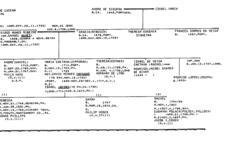
Zipporah Nunes Machado Jacobs
Zipporah Nunes was born a Conversa in Portugal circa 1710. After escaping to London to avoid being re-examined by the Inquisition, her family began practicing Judaism openly; later she became one of the first Jews to settle in the newly formed colony of Georgia in 1733.
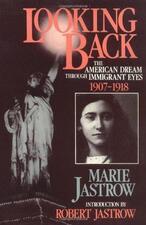
Marie Grunfeld Jastrow
Author of two critically acclaimed books on immigrant life, Marie Grunfeld Jastrow was educated in a German school, and lived in Serbia before moving to New York with her family at age ten. Her two memoirs, A Time to Remember: Growing Up in New York Before the Great War and Looking Back: The American Dream through Immigrant Eyes, touched audiences deeply.
The Jewish Family in Early Twentieth-Century United States
Jewish Migrations to the United States in the Late Twentieth Century
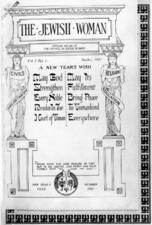
The Jewish Woman
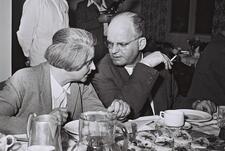
Senta Josephthal
Senta Josephthal was German-born Zionist activist who was particularly influential in the kibbutz movement. She trained and recruited young Germans to the movement and represented the kibbutz movement in national organizations and political arenas after emigrating to Palestine.
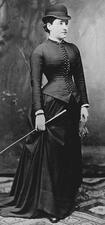
Juedischer Frauenbund (The League of Jewish Women)
Founded in 1904, The League of Jewish Women pursued secular German feminist goals while maintaining a strong sense of Jewish identity. The League supported vulnerable women through practical social reforms while fighting for political power within the German Jewish community. It saw employment opportunities as essential to women’s economic, psychological, and emotional independence.
Dorothy C. Kahn
During the Great Depression, Dorothy C. Kahn helped pioneer social work as a service provided by the government to all who needed it. Kahn developed, implemented, and advocated for social welfare programs and policies whose underlying principles upheld her deepest beliefs about what social welfare could mean in a democracy.
Ita Kalish
Ita Kalish was a Zionist activist, Jewish Agency employee, Israeli civil servant, journalist, and memoir writer. Born into the Warka Hasidic dynasty, Kalish rejected her upbringing and went on to write nuanced portrayals and female-centered literature about the Hasidic community. Kalish’s memoirs are a rich source on the inner life of the Hasidic courts of Poland at the turn of the twentieth century and center around her own and her friends’ journey to leave what they considered the stifling atmosphere of the Hasidic world.
Régine Karlin-Orfinger
Régine Karlin’s resistance activities would alone have warranted esteem and recognition, but she did not desist from further work. Totally bilingual in French and Dutch and even polyglot, since she was also proficient in both English and Russian, she had a brilliant career as a lawyer, characterized by her militant and unwavering support of causes that she considered just.
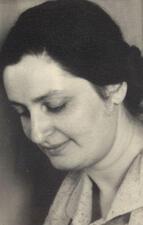
Hannah Karminski
During the mid-1920s and the 1930s in Germany, Hannah Karminski served as secretary of the League of Jewish Women and, from 1924 to 1938, as editor of its newsletter. After the forced liquidation of the League in 1938, Karminski remained in Germany and continued her work in the Reich Association of Jews in Germany, assisting with the kindertransports and welfare. She was deported to Auschwitz and murdered in 1942.
Lillian Kasindorf Kavey
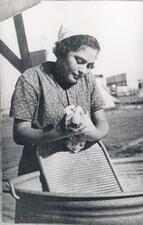
Kibbutz
Although the kibbutz was intended as an equalitarian, democratic utopia, attempts to achieve gender equality have been limited by traditional masculinities and male-controlled spheres and gender inequalities have persisted.
C. Marian Kohn
A product of the Progressive Era and conservative Philadelphia German Jewish society, C. Marian Kohn was a social worker and tireless advocate for working women in the early twentieth century.
Esther Loeb Kohn
Esther Loeb Kohn helped bridge the gap between Chicago’s volunteer and professional social workers and spent thirty years running the Hull House settlement whenever founder Jane Addams was away on her frequent travels.
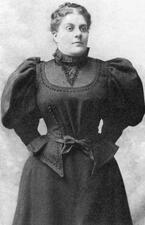
Rebekah Bettelheim Kohut
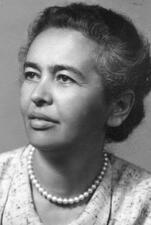
Malka Kolodny
Malka Fisz Kolodny served as one of the first teachers in pre-State Palestine. She taught subjects ranging from basic literacy to chemistry and biology and encouraged, counselled, and supported her students, staying in touch with them for years.
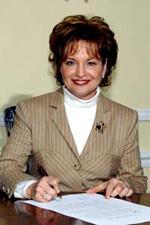
Julia Koschitzky
An activist, philanthropist, and leader of Canadian and world Jewry, Julia Koschitzky was born in Cardiff, Wales, the daughter of Max Podolski and Elli (Moses) Podolsk. The family relocated to Canada in 1949, eventually settling in Toronto in 1956. Julia and her husband Henry Koschitzky became involved in communal leadership and philanthropy, specifically in Jewish education and social welfare, and she took on active roles in Jewish affairs both in Toronto and around the globe.
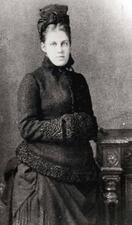
Emma Lazarus
Emma Lazarus (1849-1887), an internationally known poet and essayist, created the role of the American Jewish writer. She lent her voice to the Statue of Liberty to enunciate a vision for America, but she herself was in no doubt about the Jewish roots of her vision in tikkun olam (repairing the world) through righteousness, justice, and compassion.
